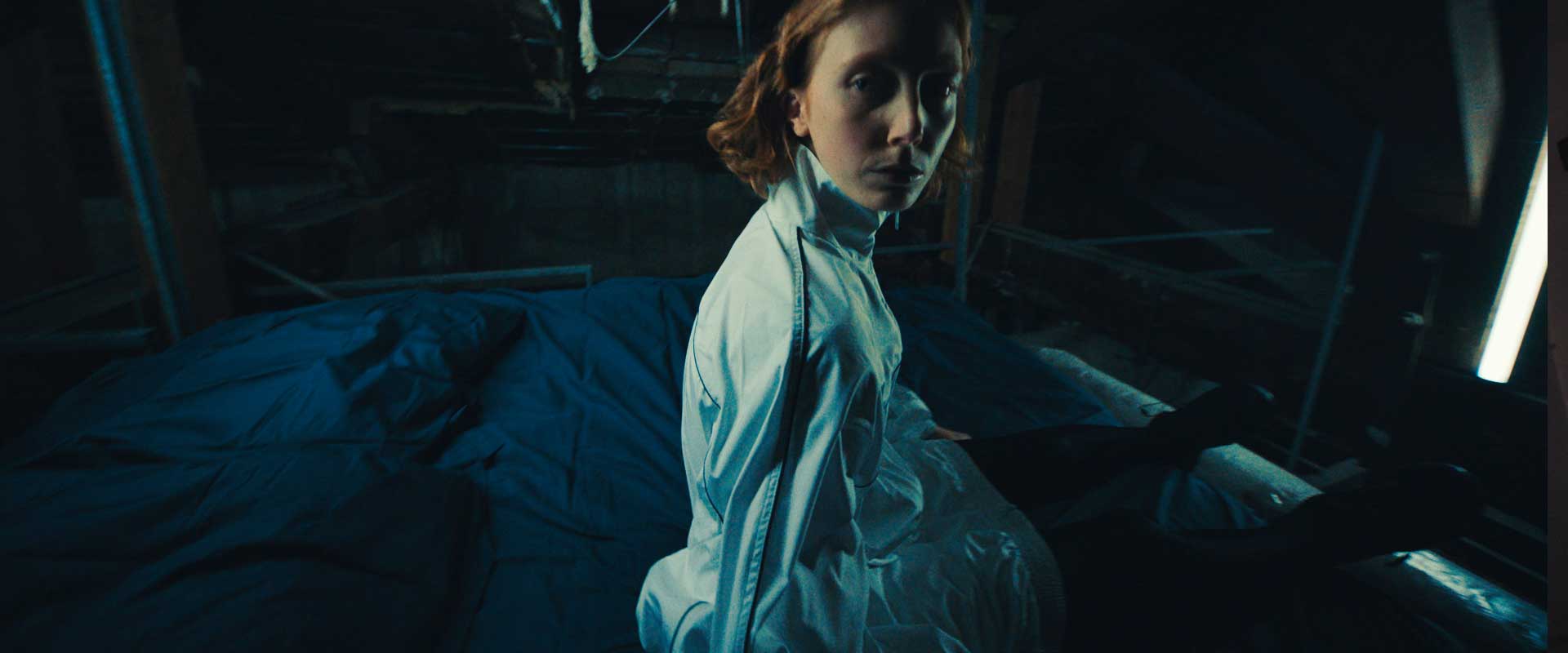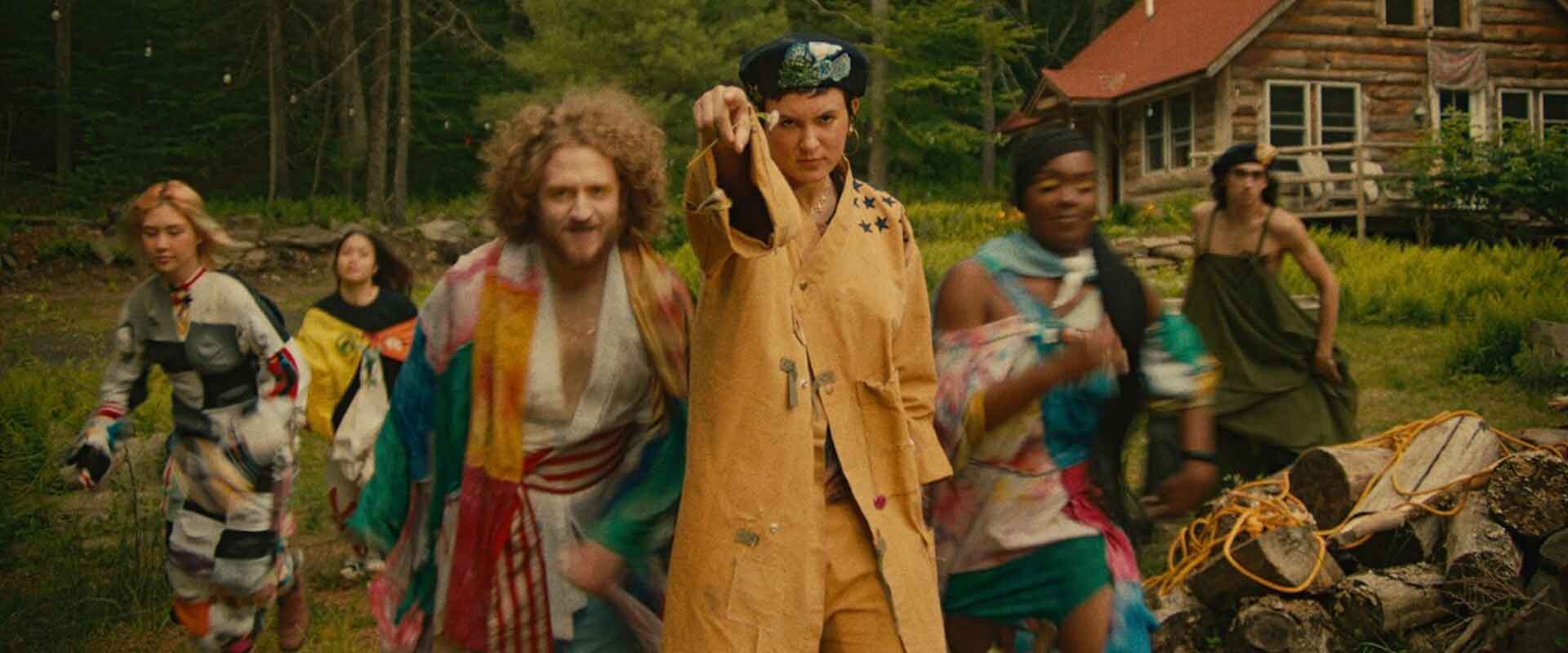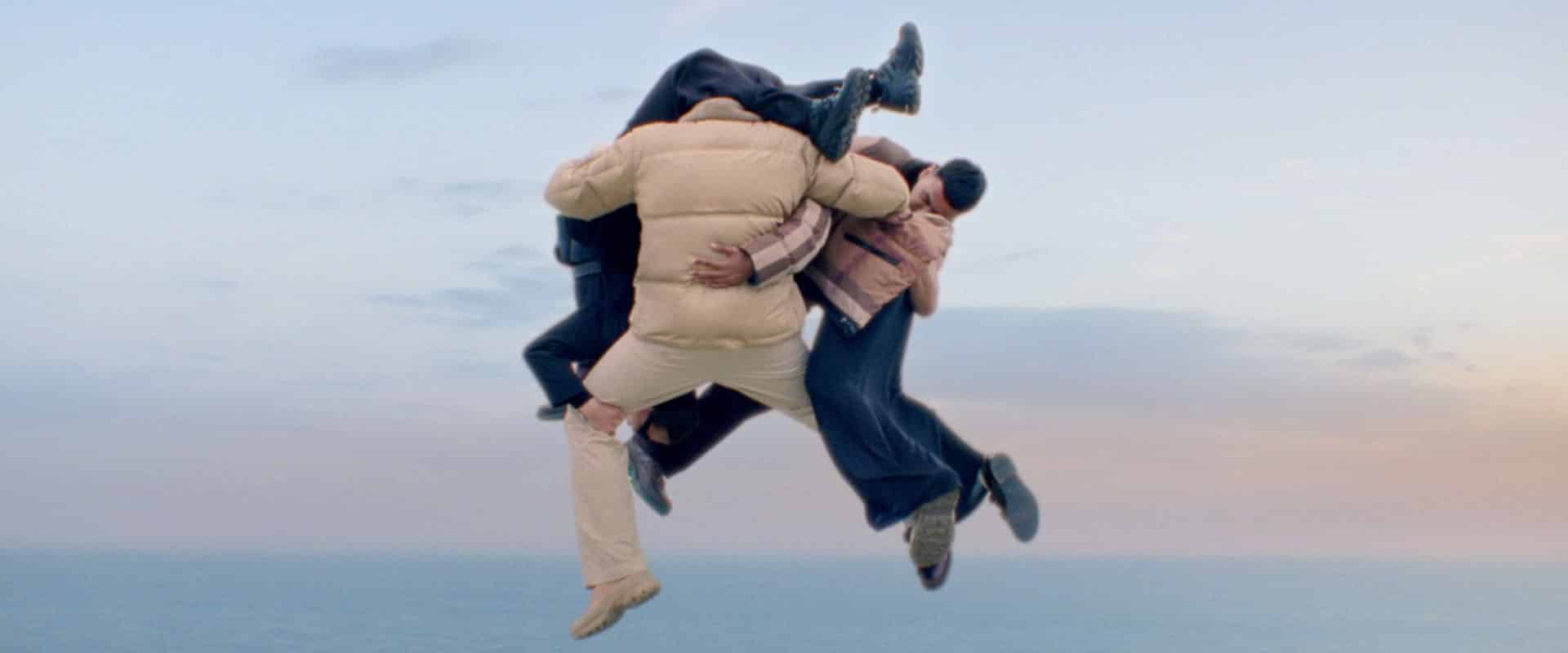ENO: What was the process of this film like from your perspective? What was it like to do an interview where you were given a script? Tell us how it worked.
NICO: I’m generally open to new approaches and I have enough experience to know whether something is likely to work. Also I trust my instinct and we have worked together before, so I knew it was going to be good – even though it took me a minute to understand how meta you wanted to get. From a PR perspective I thought it was a great way to give new life to content that had been around for a few months.
Running the interview with a script was actually ok. The whole process has been collaborative from the start, with you asking me the sort of questions you would find in an interview with a director. So the script was based on those. The rest of it was direction on your part, which I very much appreciated as you had a clear vision on how I should sound.
ENO: What were some moments of the film that you felt resonated most strongly? Why?
NICO: I loved seeing you acting me out. Because that’s exactly the level of cheese I expect people to perceive in these kinds of interviews. And the escalation of the deodorant, as I can definitely relate to that feeling of “well, should I?”
ENO: The film tries to turn an interview on its head by showing the honesty in the visuals behind some of the dishonesty in the answers. Do you feel them that interviews have a pressure to show a better side of people? What role does honesty play, even if unflattering, in an interview?
NICO: An interview should provide insight into something/someone. If I choose to interview you, it’s because I find you and your work interesting and I want to know more about it. It’s not as binary as showing them as good or bad – these are judgments that I leave up to the reader. But I do believe that the level of honesty you will receive from the person being interviewed depends on the kind of questions that they are asked. I prefer to craft detailed questions, showing the interviewee that I have taken the time to dig deep into their work and thus building a level of trust between us.
ENO: Why do you think we’re so afraid to be honest publicly?
NICO: Nowadays we are constantly being reminded to be authentic and honest with our work and social media. At the same time, we still try to maintain a professional persona that has to fit within specific parameters. It has become a very confusing play where we constantly have to think about how to appear like the most authentic versions of ourselves. I know I struggle with that – I’m quite a reserved person, though I’m fully aware that within my line of work I have to be present whether online or offline. Recently I’ve tried to not overthink it too much, but I still find myself checking with my friends whether something I post is at the right point between personal/professional.
ENO: The films I try to write about are about pulling back the curtain from the glamour of the film world and ad industry as a director. What can you tell us about pulling the curtain behind the interviewer or press side of the curtain? What are some low moments or funny moments of eye rolling that you’ve had? You’re one of the most authentic press people I’ve met so I’m curious how you stay so grounded and real.
NICO: Working in PR is, well, madness. A good friend of mine works in PR (children’s publishing), so we are able to share the burden. But generally it feels like an emotional rollercoaster. My boyfriend often says that my mood changes from one second to the next, depending on the emails that I get. And this is something I’m looking to improve on, as I don’t think it’s healthy for your work to have that much power over your emotional side.
Generally PR has a horrible reputation. I see it in people’s faces when they ask me what I do. I see the mixture of fear and disappointment, questioning whether I’m being nice to them because I want something. I’ve come to terms with it; now I find it funny and will joke about it, but there was definitely a point when I started wondering over the choices that I had made. I think the key is to remember that ultimately, it doesn’t matter. It may come across as a defeatist attitude, but it’s quite the opposite. Having a bit of a detached approach helps me stay grounded. By nature, I’m a people pleaser so I want people to think well of me. I want people to know I’m doing a good job (And like most of us, we tend to place more focus on our failures than our wins). But this is a dangerous game to play, so I’m working on setting boundaries.
ENO: How did you become an interviewer? What interviews have you conducted that surprised you in a positive way? Negative way. Can be anonymous.
NICO: Out of necessity. When I was running Berlin Fashion Film Festival, we’d spend time and money looking for panel hosts only to then sit and cringe as they wouldn’t know what they were talking about. So I started hosting panels and talks at festivals, which is something that I still find terrifying and exciting at the same time. It’s a great feeling while you’re doing it – you spend days researching, figuring out the dynamics, playing it all in your head as you assess the speakers’ personalities in advance to decide who needs to be reigned in and who needs to be prompted. More than panels, I like one-on-ones. That’s when you really get the chance to go deep and focus on the conversation.
ENO: How important are interviews now in the digital space that we don’t have printed magazines anymore? Do you feel that people read them? Or they are lost more?How has the “interview” changed now that the stage is less physical and tactile?
NICO: Obviously print still holds a certain glamour to it, but in all honesty digital is way more practical and useful. The two can simply coexist and it doesn’t have to be a competition. But the role of interviews has indeed changed. It may be harder to get people to read, due to changes in our habits, but having your name associated with a specific publication and being able to share it across your channels is still great PR. I’ve recently launched a new platform called Curation Hour, dedicated to content across fashion, music, lifestyle, dance, art, and design and contemporary culture. I was debating whether to simply feature content by embedding the video link and copying and pasting the press text from the submissions received. But with some of the more interesting works I think it makes sense to run Q&As and learn more about the creatives making the content. I know that because I come from the opposite perspective – when I pitch new work to publications I always value a Q&A more than a reshare.
ENO: What was your lowest point in your career? How did you bounce back?
NICO: Wow, you are going in deep. I think the lowest point must have been in 2016. I had been working on setting up and growing Berlin Fashion Film Festival for five years. Running an event like that means giving up your life and dedicating every single minute to it. I was and still am proud of it, in fact I’m really glad that it’s running (shout out to Philipp Ulita, the new MD who’s doing a wonderful job). But at the time, the internal workings of the company werevery toxic. It was not a pleasant experience and it had started to affect my health. It was also around the same time that my dad and aunt got sick. So even though I was distraught at the idea of leaving, as I felt like I was going to throw away all the work I had done and my career, I decided to leave rather than stay and fight. As cheesy as it sounds, I’ve always believed that you shouldn’t not do something out of fear. It took me over a year to find my place again. A lot of trial and error, but eventually I channeled what I did best at the festival into a freelance profession, that being PR and Festival Distribution.
ENO: How do you put Nico in the work you do? What is your thumbprint?
NICO: As little amount of bullshit as possible.
ENO: What does “success” mean to you?
NICO: Success is living comfortably doing something you enjoy. We all compare ourselves to others. There will always be someone having a more stable lifestyle, being more grounded and having more money. But I’m ok with that. I want to run a financially successful business whose main objective is to leave a positive mark in other people’s lives. Obviously success doesn’t necessarily only have to relate to your career, but whether I like it or not I do identify with my work so it does play a big part in how successful I feel.
ENO: How important are awards?
NICO: Awards are an additional tool to increase your visibility and network. I feel that often press work and awards are seen as magic tools able to open all doors and get new work instantaneously. But the reality is that these are complementary instruments which the directors have to then learn to use to their advantage. Awards and press have to be part of an overall strategy where you are present on social, go to events, set up meetings with clients and producers, and make new work.




